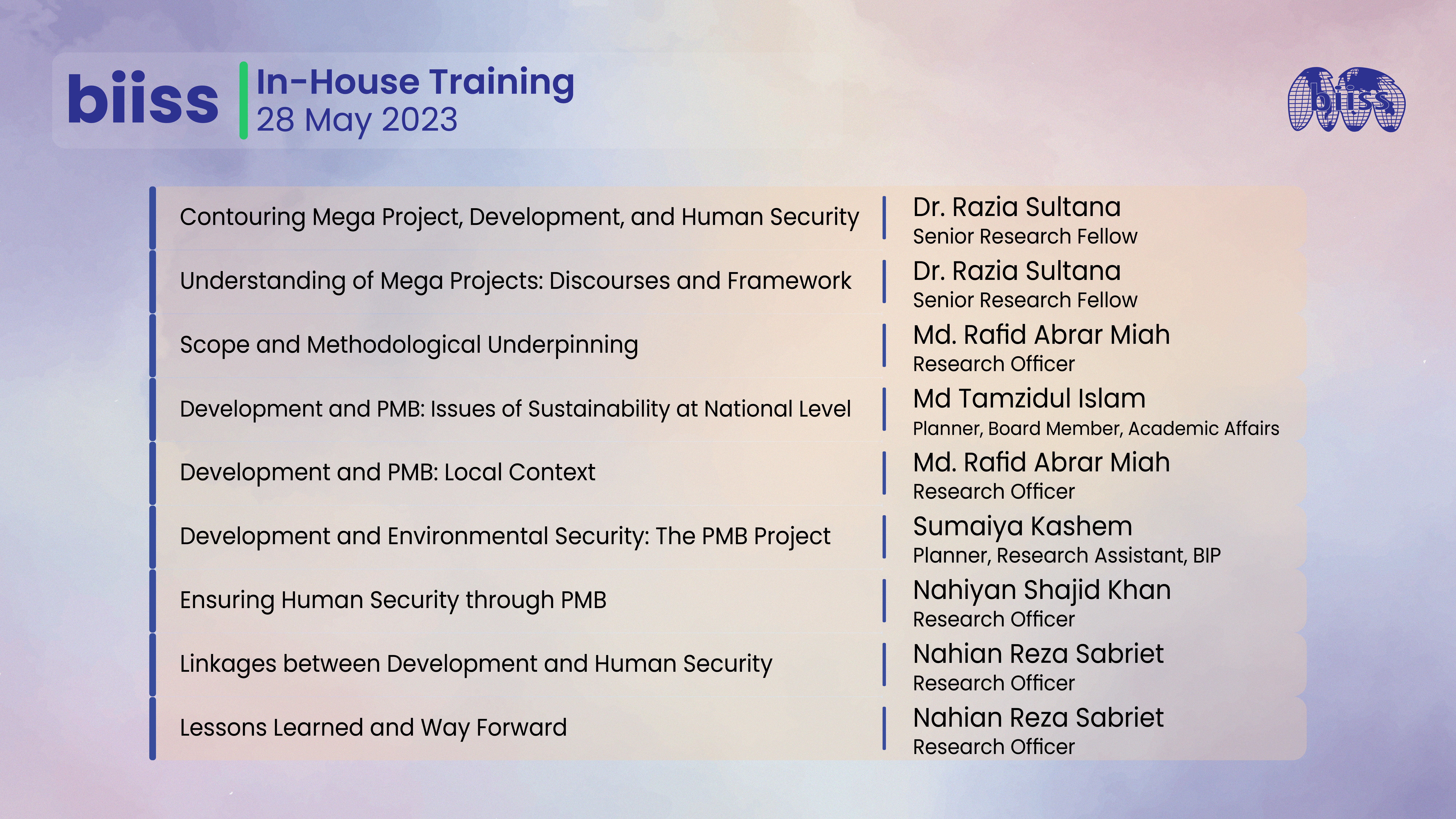An in-house training session on the EU's Global Gateway strategy and its implications for Bangladesh.

This in-house training session is designed to provide BIISS researchers and relevant government officials with a deep and practical understanding of the European Union's "Global Gateway" strategy. As a major initiative aimed at mobilizing €300 billion in investments for sustainable and high-quality projects worldwide, the Global Gateway presents significant prospects and challenges for Bangladesh. This training will move beyond a general overview to offer a detailed analysis of the strategy's objectives, priority sectors (digital, climate and energy, transport, health, and education), and governance mechanisms. The session will be structured to equip participants with the knowledge to critically assess how this EU connectivity strategy competes with and complements other regional initiatives, most notably China's Belt and Road Initiative (BRI).
A key focus of the training will be on identifying concrete opportunities for Bangladesh to align its national development plans, such as the Perspective Plan 2041, with the investment priorities of the Global Gateway. Participants will engage in interactive sessions to analyze potential projects in areas like renewable energy, digital infrastructure, and sustainable transport that could attract funding under this framework. The training will also cover the challenges, including the EU's stringent criteria related to good governance, environmental standards, and transparency, which Bangladesh must meet to be a successful partner. Through case study analysis and strategic scenario planning, the program aims to enhance the capacity of participants to formulate effective policy recommendations and engagement strategies. The ultimate goal is to enable Bangladesh to proactively navigate the era of competing connectivity strategies and leverage initiatives like the Global Gateway to attract quality investment that supports its sustainable development trajectory.